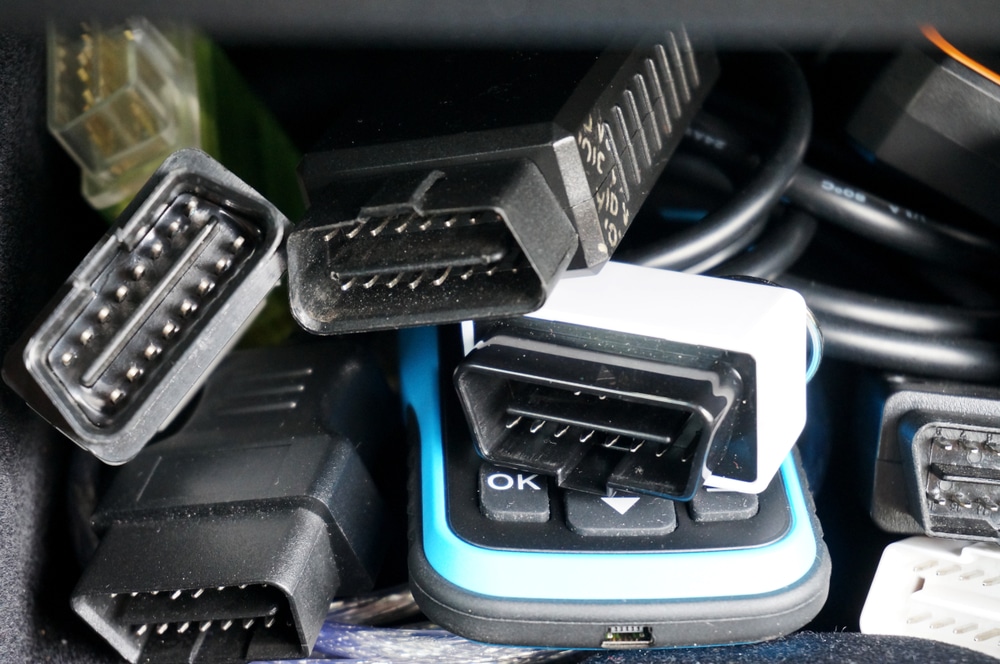
P0000 is a rare OBD2 fault code. While there are over 10,000 DTC “P” codes, this is the only one reserved for “no fault detected” in the ECU’s (engine control unit) memory. It tells the scanner accessing the ECU that no codes are stored.
The most common reason you’ll see P0000 is using a scan tool incompatible with your vehicle (check engine light on, but no other codes showing) or the scanner defaults to this code when no other codes are present (check engine light off).
You only need to be concerned about this code if the check engine light is on, which would indicate your scanner or multipurpose device is not pulling the codes properly.
P0000 Quick Info
| Symptoms | Your vehicle should run and drive fine |
| Causes | Bad scan device, scan device displaying redundant code |
| Breakdown Risk? | There aren’t usually any drivability problems associated with P0000 |
| Repair Cost | No repair required |
P0000 Definition: No Fault Indicated

P0000 indicates that there is no fault detected. On most scanners, it won’t even register as a code. Its job is to tell the scanner that there are currently no diagnostic trouble codes stored within the ECU’s memory. Since it comes up like a code, the scanner can verify it has accessed the right part of the memory.
It is not a manufacturer-specific DTC (Diagnostic Trouble Code); rather, it is generic (it has the same definition for all vehicles with OBD2, no matter the make or model).
Symptoms
There are rarely symptoms associated with P0000. The check engine light shouldn’t be on if it’s the only code stored in the ECU:
Check Engine Light (MIL)

P0000 is stored in the system memory to instruct the scanning device that no other codes are present. Displaying it as a code lets the scanner know the memory bank with stored codes was accessed.
The malfunction indicator lamp should not be on. If it is, try another scan tool. P0000 by itself should not turn on the check engine light, so there should be other codes.
Drivability Issues
There should be no drivability issues associated with P0000 when it appears by itself. If there are drivability issues, try using another scanner.
P0000 Causes
There are two scenarios when you encounter P0000. Either there is nothing wrong with the vehicle (most likely), or the scan tool you’re using isn’t picking up the stored codes.
The easiest way to tell if there is something wrong is to look at the check engine light:
- If the check engine light is not on, your code reader falls back to P0000 as a default.
- If the check engine light is on, the code reader is having trouble accessing the stored codes.
The most common cause of this code is using a scan tool that is incompatible with your vehicle. Any OBD2 scanner should be able to pull codes properly.
Scenario 1: No Check Engine Light

If the check engine light is not on, and the only code that your scan tool is pulling up is P0000, there’s nothing to worry about. Most scan tools won’t even mention P0000, and it looks like yours does.
Scenario 2: Check Engine Light On
If the check engine light is on, codes should be stored in there other than P0000. If you can’t access them, try using a different scanner.
If you do get other codes with this one, deal with them. P0000 will take care of itself after you fix what’s causing them.
P0000 Fix
There is nothing to do when you encounter this code. If the vehicle is running well and the check engine light is off, there is nothing to do.
Other codes are stored in the ECU’s memory if the check engine light is on. You’ll need to get a scan tool that is compatible with your vehicle in order to pull the other DTCs (Diagnostic Trouble Codes).
Take it to the local parts store if you can’t get your scanner to play nice with your vehicle. Most of them use solid scan devices that should not have any compatibility issues with your vehicle.
Related Codes
There are no codes related to P0000, and there is nothing to repair when it’s the only code you see when plugging a scanner in.
